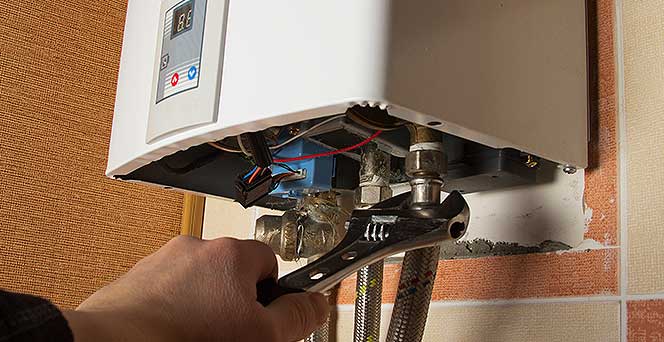Just how do you really feel on the subject of How to Avoid a Broken Hot Water Heater?

Whether it is situated in the cellar or a different space, broken water heating systems can cause tension. Having no hot water supply is additionally frustrating.
Shut Down Source Of Power
Prior to calling the plumber, closed off a gas water heating system by turning the temperature level dial. This will certainly prevent electrocution, specifically if there is a leakage as water is a conductor. Usually, the heating element shuts off when the water strikes a specific temperature.
Cut Off the Cold Water Supply
Cut off the containers tap water supply from the resource. This goes from your primary water line into the storage tank. When your storage tank is in good condition, the cold water quits filling out when the storage tank is full. However because it is leaking, the water will continue to flow. Shut the valve discovered on top of the heater. Turn this clockwise to shut it off. You need to turn off that major water supply line outside your home if you can not find it or reach it.
Call the Plumber
After doing the very first two safety actions, you need to call your plumber to come right away to take care of a ruptured water heater. There are normally signs that your aging water heater has sediment buildup in the inside.
- Rusty water originating from the hot water tap
- Weird noises from within that show sedimentation
- Leaking links
- Pooled water under the storage tank due to small pinholes
- Don't wait on significant flooding to call the plumber. By then, you will need to invest even more to recover your home. Instead, as quickly as you identify these indications, have actually a specialist pertained to inspect your hot water heater give thanks to. Normally, hot water heater have a lifespan of about 8 to 12 years. With regular assessment as well as upkeep, you can prolong its life.
Clean Up Building
After calling the plumber, paper damage by bearing in mind as well as pictures so you can claim your home owner's insurance policy. From there, start the prompt clean-up. Obtain any type of important belongings to prevent more saturating. After that, get rid of any standing water to stop mold as well as mildew development. Utilize that to drain the water if you have a completely submersible water pump. Otherwise, the standard bucket method will additionally work. Try to mop out every little thing, including walls and walls. If you have an electrical fan and dehumidifier, keep them going to keep air flowing. This will assist discourage mold development.
Remember, if you observe any concerns with your water heater, call the pros right away. You can not take this problem lightly due to the fact that a damaged thermostat can elevate water temp to a hazardously high degree, leading to accidental burns.
Whether it is located in the basement or a different area, busted water heaters can trigger tension. Before calling the plumber, shut off a gas water heating unit by transforming the temperature level dial. After doing the first two safety and security actions, you need to call your plumber to come right away to fix a burst water heater. If you have a completely submersible water pump, use that to drain the water. Remember, if you discover any issues with your water heater, call the pros right away.
5 Signs It’s Time to Replace Your Water Heater
Your Water Heater is too Old
Nothing lasts forever, least of all a water heater. During the course of an average home occupancy, a resident is bound to face that moment where they need to replace a water heater. Trouble is, most homeowners are unaware of when a water heater reaches its expiration date. Not knowing this, however, can lead to major risks when the heater starts acting up due to old age.
How Long Do Water Heaters Last
The majority of water heaters last between eight and ten years. While ten is the age at which heater replacement is generally recommended, the actual need to replace a heater could arise before or after this timeline. Whether or not a heater begins showing symptoms, you should replace it once a decade has passed from its manufacture date.
Rusty Water or Heater Inlet Valve
Even though steel is the strongest material on the face of the earth, it has a weakness: rust. When corrosion takes hold on a steel surface, it slowly spreads and eats through the steel in certain spots. On water pipes and tanks made of steel, rust serves as the warning sign for oncoming leaks.
Trouble is, it’s often hard to tell whether rust is coming from the water heater itself or the pipes that lead to your faucet. In any case, rust is an immediate problem that needs to be rectified for the sanitation of your household.
https://www.davidleroyplumbing.com/blog/5-signs-time-replace-water-heater/

Do you like more info about Water Heater Burst? Leave feedback down the page. We will be delighted to hear your insights about this blog post. We hope to see you back again in the near future. Feel free to take a moment to share this blog post if you enjoyed it. Thanks a bunch for your time. Don't forget to come visit our site back soon.
Precise fixes offered.
Comments on “Essential Steps for Residential Property Owners Handling Malfunctioning Water Heaters”